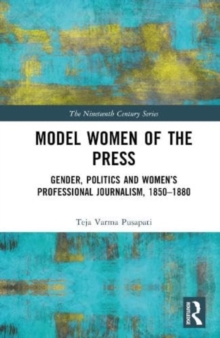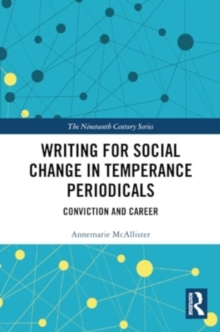
The Politics of Gender in Anthony Trollope's Novels : New Readings for the Twenty-First Century EPUB
by Deborah Denenholz Morse
Edited by Margaret Markwick
Part of the The Nineteenth Century Series series
EPUB
Description
Bringing together established critics and exciting new voices, The Politics of Gender in Anthony Trollope's Novels offers original readings of Trollope that recognize and repay his importance as source material for scholars working in diverse fields of literary and cultural studies.
As the editors observe in their provocative introduction, Trollope more than any of his contemporaries is studied by scholars from disciplines outside literary studies.
The contributors here draw together work from economics, colonialism and ethnicity, gender studies, new historicism, liberalism, legal studies, and politics that convincingly argues for the eminence of Trollope's writings as a vehicle for the theoretical explorations of Victorian culture that currently predominate.
The essays variously examine imperial and postcolonial themes in the context of economic, cultural, aesthetic, and demographic influences; show how gender-sensitive readings expose Trollope's critique of capitalism's influence; address Trollope and sexuality in the context of queer studies, the law, archetypal constructions, and classical feminism; and offer new approaches to narrative theory through examination of Victorian understandings of male and female psychology.
Regenia Gagnier's concluding chapter revisits the collection's critical strands and reflects on the implications for future studies of Trollope.
Information
-
Download - Immediately Available
- Format:EPUB
- Pages:274 pages
- Publisher:Taylor & Francis Ltd
- Publication Date:05/12/2016
- Category:
- ISBN:9781351883818
Other Formats
- Paperback / softback from £46.35
- Hardback from £145.00
- PDF from £44.99
Information
-
Download - Immediately Available
- Format:EPUB
- Pages:274 pages
- Publisher:Taylor & Francis Ltd
- Publication Date:05/12/2016
- Category:
- ISBN:9781351883818










